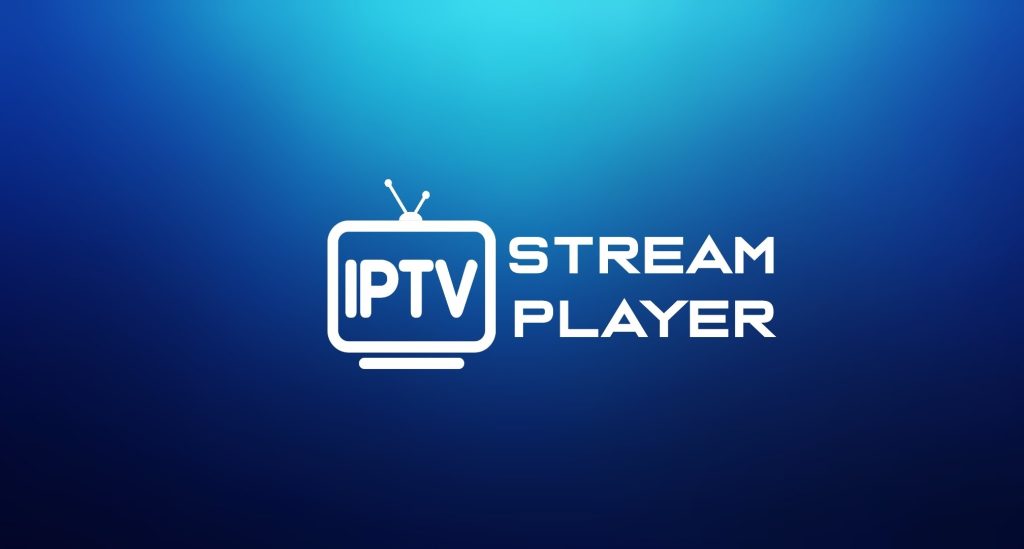In an era where streaming is fundamentally altering our viewing habits, IPTV Services emerges as a transformative technology. This technology facilitates the delivery of a diverse range of content directly to individual devices. This discussion will delve into the numerous advantages of IPTV, including its convenience and potential for cost savings. Additionally, we will provide a comprehensive step-by-step guide for streaming live television and examine the anticipated developments in the IPTV landscape as we approach 2025. Prepare to enhance your viewing experience significantly.
Key Takeaways:
- IPTV is a technology that allows users to stream live TV through internet protocol.
- It continues to evolve, offering more convenience, cost savings, and customization options to viewers.
- With IPTV, viewers can save on cable and satellite costs, have access to video on-demand content, and choose from a variety of providers. A step-by-step guide and recommended providers make it easy to start streaming live TV.
- The future of IPTV looks promising, with advancements in technology and potential impact on traditional TV. By 2025, IPTV is expected to have a major influence on the way we consume and access live TV.
What is IPTV and How Does it Work?
IPTV, or Internet Protocol Television, transforms the media consumption landscape by delivering television content via high-speed internet connections instead of traditional satellite or cable methods. IPTV providers offer a range of subscription plans, including buffer-free technology to enhance user experience.
This contemporary streaming service enables users to access live television and Video on Demand (VOD) content across a variety of devices, enhancing its compatibility with today’s digital media environment.
Since its inception, IPTV has undergone significant evolution, presenting a wide array of international channels and user-friendly interfaces tailored to diverse entertainment preferences.
A comprehensive understanding of IPTV requires an awareness of the underlying technology that facilitates content delivery, as well as the advantages it offers in comparison to conventional broadcasting methods.
Explanation of IPTV Technology and its Evolution
The evolution of IPTV technology has been characterized by significant advancements that have transformed the delivery of content, thereby enhancing the entertainment experience for users. Streaming service providers now offer trial periods for users to explore their content library.
Initially constrained to basic streaming capabilities, IPTV has expanded to include innovative features that provide high-definition content and seamless viewing experiences, comparable to traditional cable services.
Popular posts
- IBO TV Player Activation 101: Everything You Need to Know
- IPTV in the US: A Closer Look at the Cutting-Edge Technology
- How to become an IPTV provider US: Start your Business
- StaticIPTV Reviews: The Real Deal | StaticIPTV.us
- Troubleshooting IPTV Smarters Pro Lagging: Expert Solutions
- Best IPTV Service Providers in the USA
- Best IPTV with No Buffering
Over the years, the development of broadband internet infrastructures and MPEG-4 compression technology has transformed the transmission of video content, enabling faster and more efficient data transfer. These advancements have not only improved video quality but have also facilitated interactive functionalities, such as Video on Demand (VOD) and user-customizable playlists, thereby enhancing viewer engagement.
As IPTV technology has progressed, it has become essential to differentiate between licensed providers and unverified services. Legal concerns surrounding unverified services highlight the importance of choosing reputable providers for online safety.
While legitimate IPTV providers operate within legal frameworks to deliver quality content, unverified platforms may violate copyright laws, often leading to limited support and potential security risks.
Understanding these distinctions is crucial for users navigating today’s dynamic technological landscape.
Benefits of Using IPTV Services
IPTV services offer numerous advantages that significantly enhance the viewing experience in comparison to traditional television options, contributing to their growing popularity among consumers.
Among the most notable benefits are the convenience of on-demand access, cost savings achieved through flexible subscription models, and customizable channel lineups tailored to a diverse array of entertainment preferences.
By utilizing high-speed internet and advanced streaming technologies, IPTV providers are able to deliver premium content without the complications associated with conventional cable packages.

Convenience, Cost Savings, and Customization Options
The convenience offered by IPTV services enables users to access their preferred shows and live television across multiple devices, including popular streaming devices like Firestick and Android TV, resulting in a user-friendly experience for both individuals and families.
Whether streaming on a Firestick while relaxing on the couch, accessing content on an Android TV in the bedroom, or utilizing a smartphone or tablet while on the go, the flexibility of IPTV ensures that entertainment is readily available, effectively eliminating the limitations associated with traditional cable television.
In terms of cost comparison, users often discover that subscription plans for IPTV are significantly more affordable, leading to substantial savings when contrasted with conventional cable services, which frequently entail higher fees and limited options.
The customizability of channel lineups allows individuals to create a viewing experience that is specifically tailored to their interests, consequently enhancing user engagement and satisfaction with their entertainment selections.
How to Stream Live TV with IPTV Services
Streaming live television through IPTV services has become increasingly accessible, facilitated by the extensive array of streaming applications and user-friendly interfaces offered by various IPTV providers.
By adhering to a straightforward step-by-step guide, users can efficiently configure their IPTV service, enabling them to enjoy live television and video-on-demand content across multiple devices, including widely used platforms such as Firestick and Android TV.
Step-by-Step Guide and Recommended Providers
When initiating the process of using IPTV, it is imperative to adhere to a structured guide that simplifies the setup procedure and facilitates a seamless transition to this streaming service. By selecting reputable IPTV providers known for their technical support and customer service, users can significantly enhance their overall viewing experience and mitigate potential issues associated with unverified services.
- The initial step involves conducting thorough research to identify a reliable IPTV provider that aligns with individual preferences and offers a diverse content library. Considering payment options and privacy protection is critical when choosing providers.
- Once a provider has been selected, the subsequent phase entails downloading the necessary applications onto compatible devices, which may include smart TVs, smartphones, or streaming boxes.
- Following the installation, it is crucial to configure the application settings to optimize streaming quality and security, such as enabling VPN services to protect against potential security threats.
- Users are also encouraged to utilize the available customer support features-whether through live chat, email, or comprehensive FAQs-to ensure that any issues can be addressed promptly.
- Lastly, it is important to examine the features of potential providers, including their channel offerings, content update frequency, and policies regarding user privacy, as these factors are essential for a satisfactory IPTV experience.
The Future of IPTV: Predictions for 2025
In considering the future of IPTV, particularly by 2025, significant changes are anticipated, driven by continuous advancements in technology that will further improve streaming quality and content delivery. As part of the growing streaming community, providers like Tenet Streams and 4K Live are expected to revolutionize entertainment choices.
The increasing demand for premium content, along with the integration of more sophisticated streaming options, is expected to transform the IPTV landscape, presenting both new opportunities and challenges for providers and consumers alike.
Advancements and Potential Impact on Traditional TV
The advancements in IPTV technology are set to significantly affect traditional television, presenting a compelling alternative to cable that is appealing to an expanding community of streaming enthusiasts. As technology advancements continue, platforms like Sling and YouTube TV provide users with extensive connection options.
With improved features and innovative content delivery methods, IPTV has the potential to transform the manner in which viewers engage with media and challenge established broadcasting models in the forthcoming years.
In contrast to traditional cable services, which often depend on fixed schedules and limited channel selections, IPTV offers users the flexibility to watch content at their convenience, accompanied by a wide array of on-demand options. This notable transition not only changes viewing behaviors but also indicates a shift in user engagement, as audiences increasingly seek personalized experiences and interactive content.
Recent Posts
- Which IPTV services have apps compatible with major streaming devices? | StaticIPTV.us
- What IPTV subscription plans allow pausing and rewinding live TV? | StaticIPTV.us
- Which IPTV providers include access to popular live news channels? | StaticIPTV.us
- Where can I subscribe to IPTV services that support high-definition streaming? | StaticIPTV.us
- What IPTV services offer easy integration with smart TVs? | StaticIPTV.us
- Which IPTV subscription plans include cloud DVR features? | StaticIPTV.us
- What IPTV providers have the fastest customer support response? | StaticIPTV.us
As viewers move towards streaming services, the media landscape is undergoing a transformation, compelling providers to adapt to these evolving preferences by enhancing quality and expanding accessibility. This, in turn, fosters a more robust connection between content creators and consumers.
Frequently Asked Questions
What is IPTV and how does it differ from traditional TV services?
IPTV, or Internet Protocol Television, is a technology that delivers live television programming and on-demand content through an internet connection. Unlike traditional TV services that use cable or satellite, IPTV uses the internet to transmit content directly to your TV, giving you more flexibility and control over what you watch.
What services does StaticIPTV.us offer?
StaticIPTV.us offers a variety of IPTV services, including live TV streaming, on-demand content, and access to international channels. Utilizing streaming applications and disposable email for registration enhances security against potential threats. We also offer customizable packages to fit your specific viewing needs.
How will IPTV services evolve by 2025?
By 2025, IPTV services, also known as Internet Protocol Television, are expected to become even more advanced and widespread. With the growing demand for on-demand and personalized content, including VOD, IPTV providers will continue to develop new features and technologies to enhance the viewing experience, making it a viable cable alternative with available channels expanding continuously.
Do I need a special device to use StaticIPTV.us?
No, StaticIPTV.us can be accessed on a variety of devices, including smart TVs, smartphones, tablets, and streaming devices such as Amazon Fire TV, Firestick, or Roku. As long as you have a stable internet connection, you can stream our services on any compatible device, including Android TV.
